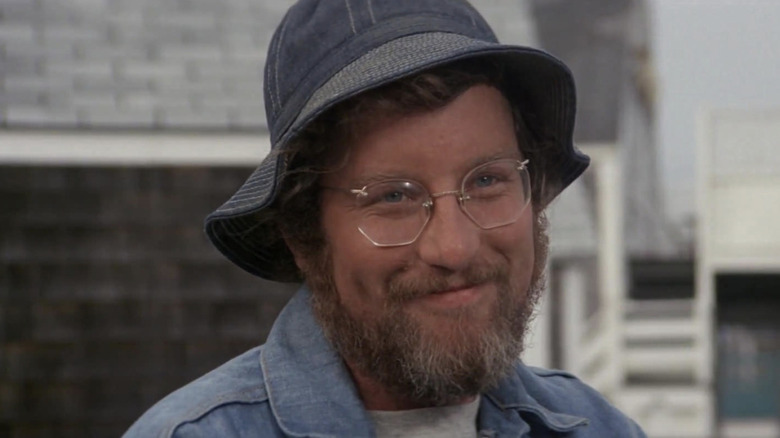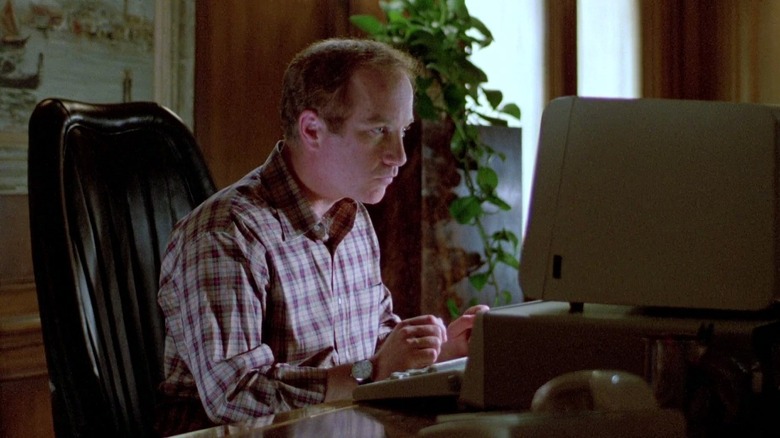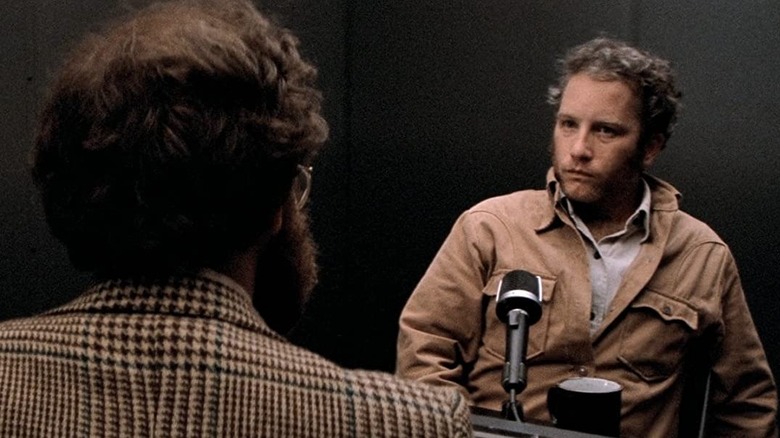
When an actor becomes as successful and beloved as Richard Dreyfuss, it's hard to imagine they could have ended up working an entirely different job, never becoming a quintessential part of Hollywood. It's no secret that a lot of people lie their way into their first job, and it was no different for Dreyfuss early on in his career. Dreyfuss did land a part on "Bewitched" and then essentially talked his way into jobs on western television shows like "Gunsmoke" and "Big Valley."
During a recent interview with TCM's Ben Mankiewicz, Dreyfuss joked about making up a much-needed skill for a cowboy. "It's the actor's oath. You know, the actor's oath is you do whatever it is they ask you to do and you say, 'I was raised on a ranch outside of Las Vegas. Of course I know how to ride.'" (Dreyfuss was raised in New York.) At that time, Dreyfuss didn't turn down any part, although he learned fairly early on that sometimes it's better to stick to your guns and keep your integrity intact.
In the early days of his Hollywood career, Dreyfuss lost his temper at a studio meeting at 20th Century Fox which led to him being thrown off the lot. It was a defining moment that made him realize he had to start being "very picky." That decision eventually put Dreyfuss on a path to win an Oscar for portraying Elliot Garfield in 1978's "The Goodbye Girl" by the time he was 30.
Get Out

Reflecting about the incident after a long career, the heralded performer couldn't even remember what production he was having the meeting about! The rings you would have to jump through and the games the higher-ups play with young auditioning actors was starting to take its toll on Dreyfuss. He grew frustrated after what was probably a power move by casting director and talent executive Milt Hamerman at the time. Recounting the story to TCM:
"I was there for the meeting. And I was on time. And when they came they were 45 minutes late. And I went to get a drink of water, and when I got back to Milt Hamerman's office, the director said, 'Why are you keeping us waiting?'"
Most actors would have just sucked it up and taken the insult to try and salvage the meeting and any chance to land another paying role. Instead, something just snapped inside of Dreyfuss who couldn't take any more crap.
"And I blew. And I really blew. And Milt calmed me down, brought us in. And he said, 'Okay, Richard, tell us what you've done.' And I said, 'No. No. Milt, you know what I've done. I've been here 1,000 times and it's insulting. The whole thing is insulting, the way you treat us.'"
There was a beat inside the room and then they told Dreyfuss to "Get out."
I Set A Different Goal For Myself

In an instant, Dreyfuss had changed the course of his career, but being a young insecure actor, he couldn't have known what the future had in store for him. But he knew what had just happened felt right.
"So, on my way to the car I remember distinctly knowing that I felt better doing that than I would have doing the role. And so, I set a different goal for myself which was to be very picky. And when you're doing one-day parts and two-day parts, the little ones, you're not picky."
Fortunately for Dreyfuss, the jump from television to movies wasn't an impossible task. He had impeccable timing and came up during a magical time in California when George Lucas and Steven Spielberg were coming into their own. Promising to be more selective in the roles he went out for, Dreyfuss was at a crossroads in his very young career. The direction he chose allowed him to cross paths with two filmmaking giants. The same year he appeared in a walk-on part in "Gunsmoke," he landed the role of Curtis Henderson in George Lucas' coming-of-age classic "American Graffiti."
The explosiveness Dreyfuss showed in that fateful meeting at 20th Century Fox was probably similar to the emotional scene in "Close Encounters of the Third Kind" when his character Roy Neary, held against his will, shouts "What the hell is going on around here? Who the hell are you people?" That scene is so powerful and raw that it's hard to see someone else in the role. Maybe Steve McQueen, as rumored, would've played Roy instead if Dreyfuss had chosen to stay in that office.
Read this next: 13 Box Office Bombs That Are Truly Worth A Watch
The post It Didn't Take Long For Richard Dreyfuss To Learn You Don't Always Say 'Yes' To A Role appeared first on /Film.
0 Commentaires